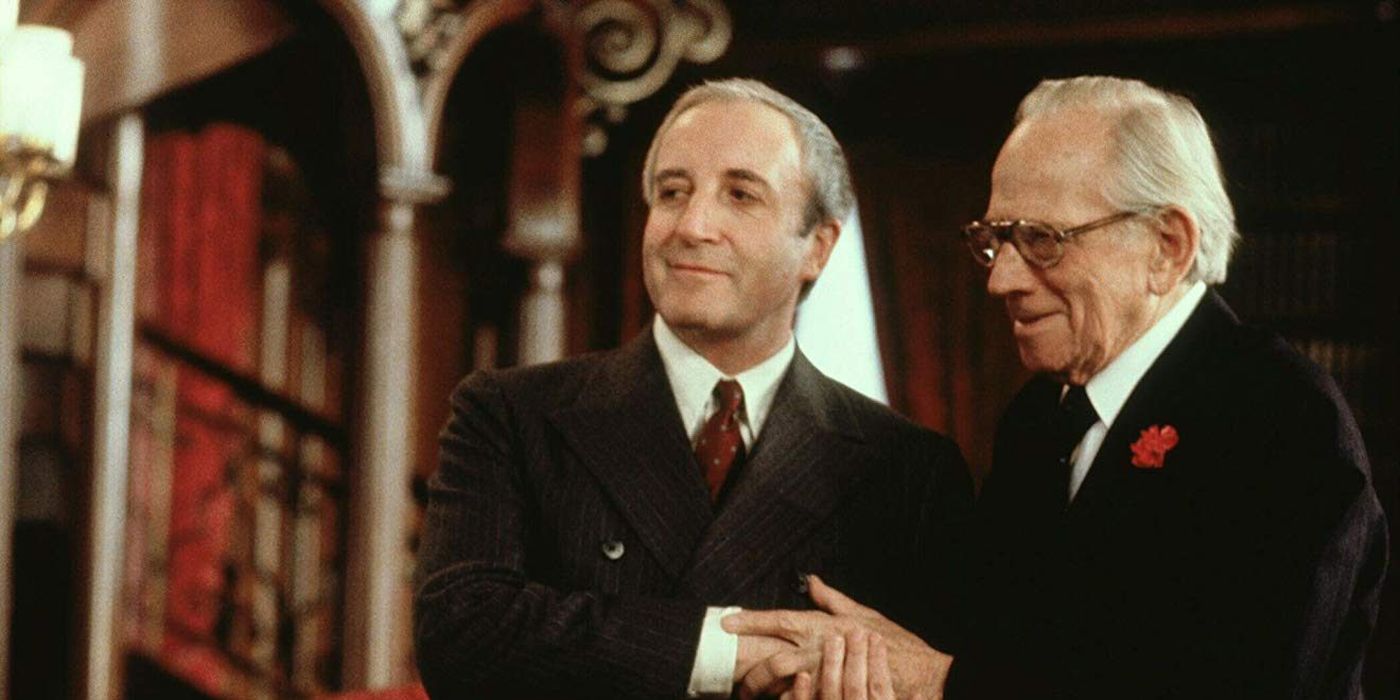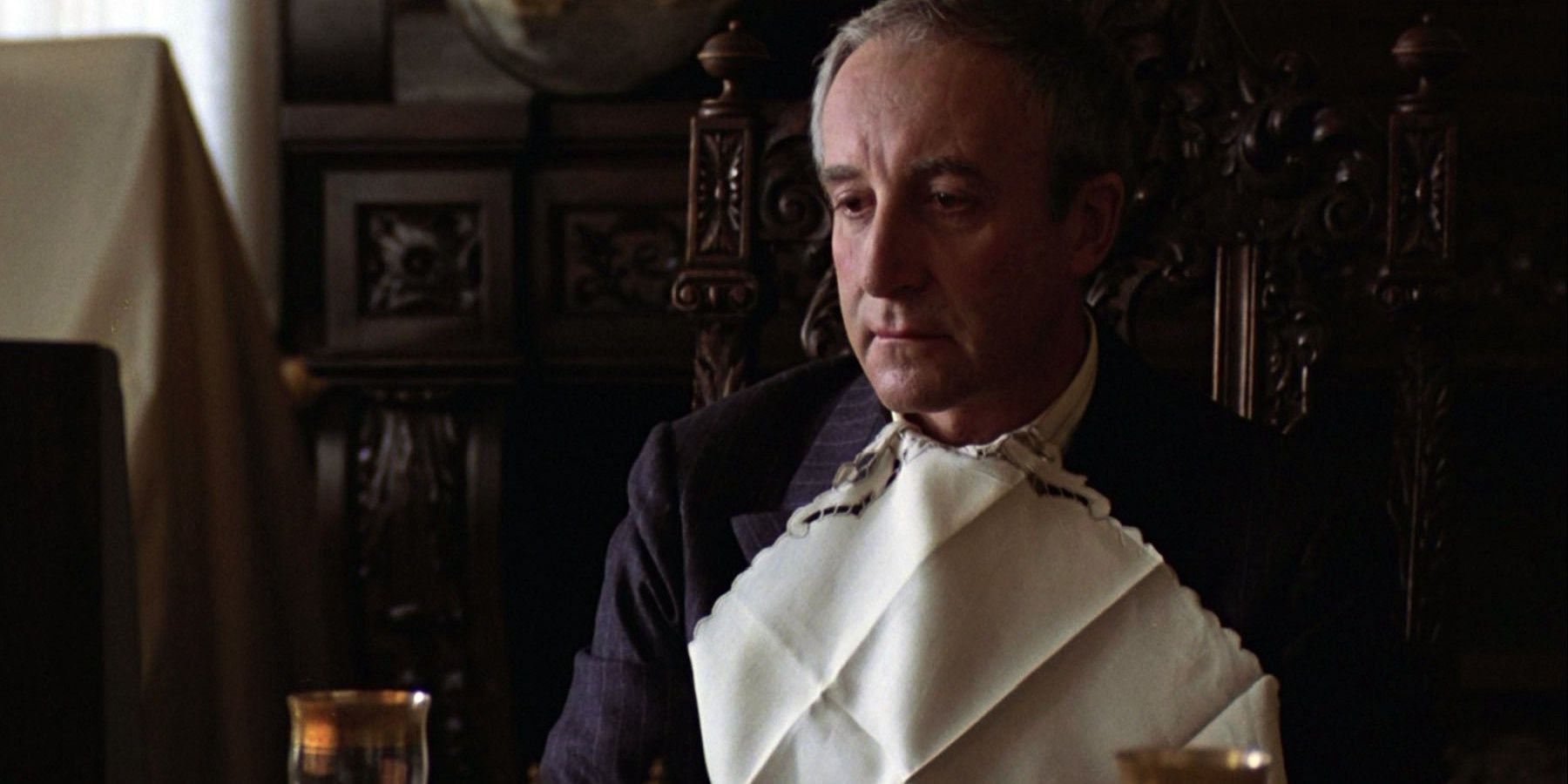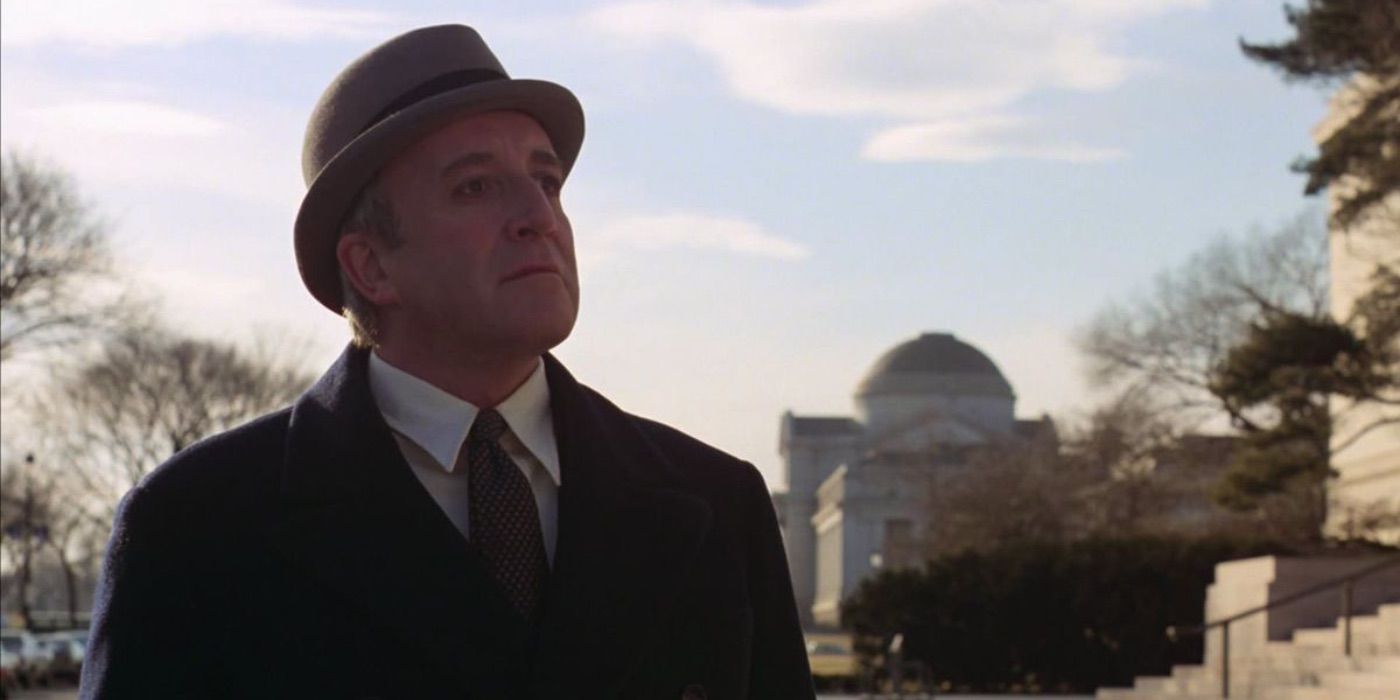Being There Ending Explained

Being There was a heartfelt satire of modern life, but it featured a surprise twist ending that left a lot of questions unanswered. Released in 1979 to rave reviews from critics, Being There was a unique film for the era and managed to weave a humorous story through subtle character moments. Actor Peter Sellers was able to reinvent himself in the lead role, and his performance scored him the Best Actor nomination at the Academy Awards. It was nominated for a slew of other notable awards and went on to become a recognized classic with its preservation in the National Film Registry in 2015.
Although the film was a sweet character study, it also had a lot to say about the state of politics in the United States at the time, and many of its sharpest barbs were subtly deployed. While it was more understated than other hilarious Peter Sellers films that displayed the actor’s comic gifts, it was, nevertheless, a witty story. The ending of the film itself was one of the movie’s funniest jokes, and it came as quite a surprise after over two hours of one type of comedy. Even if it was somewhat confusing, Being There‘s ending was as much a statement as the rest of the film.
What Happens In Being There’s Ending?
On his deathbed, Ben Rand confided one last time in his friend, Chance, and encouraged the mostly silent gardener to pursue his daughter, Eve. Eve then admitted her feelings for Chance and attempted to make advances on him, which he reciprocated by mimicking a scene on television. Ben Rand then died, leading Chance to show genuine sadness for the loss (which mirrored the death of his former employer from before the film began). Although Peter Sellers never won an Oscar, he delivered one of his most unique performances throughout the film which was reflected in its ending.
In the wake of Rand’s death, Chance began strolling across the palatial estate of his late friend, and he stopped to mend a sapling that had been blown over in the wind. As narration continued over the scene, characters discussed who should be the President’s replacement, and they reached a consensus that it should be Chance. He then continued to stroll across the property where he reached a lake and proceeded to walk across its surface and stopped to dip his umbrella below the waterline to check the depth.
Why Did Chance Walk On Water At The End?
Throughout the film, Chance seemed to benefit from divine intervention on several occasions as he unknowingly rose to the heights of Washington D.C. society. The ending seemed to suggest that Chance was a memorable movie angel all along and that the supposed divine intervention was much more divine than the movie had previously established. The final line, “Life is just a state of mind” might have also been a clue to unlocking the twist ending, and it may have suggested that Chance’s naive purity actually allowed him to walk on water.
Besides being a hilarious gag to act as the final punchline of the movie, the visual of Chance walking on water also reflected the way that some characters viewed him. Although he actually contributed nothing to Ben’s political ideas, it was obvious that Chance could metaphorically walk on water in the eyes of his elderly friend. Chance was seen dipping his umbrella under the water, which might have indicated his own surprise at his newfound ability (or it could have shown just how mundane it all seemed to the TV-obsessed gardener)
What Was The Significance Of Television?
Being There was a great satire of the rich, but it didn’t hold back on the rest of society either when it came to making broad statements. Chance’s obsession with television was evident from the very beginning, and it essentially led him along from plot point to plot point as he mimicked what he saw on screen. On the surface level, Chance’s obsession could be a joke about the rise of television in the lives of the average American, but the satire most likely stretched deeper than that. Television was a reflection of American culture at the time, and by proxy, Chance himself became a reflection as well.
Why Did Everyone Trust Chance?
One of the film’s most unbelievable aspects was that a simple man could bumble his way to the presidency without really trying. In that plot detail, Being There followed along the same lines as some of the best political comedy films, with its lambasting of the crooked governmental systems. Everyone loved Chance because he was a blank slate, and on him, the many characters could put whatever they wanted that pleased them best. Characters like Ben Rand held many “conversations” with Chance, but those talks often consisted of Chance spouting lines he had heard on TV or repeating what the other person had just said.
Hilariously, the movie was essentially saying that political figures only wanted to hear themselves talk, and it all came full circle through Chance. The whispered discussion at the very end of the film established that Chance would most likely be President in the future, and his character took on another layer of meaning considering the fact that he had little if anything of value to say both politically and otherwise. Being There was a time capsule to the 1970s with its style and execution, but the films biting political satire remained relevant for decades to come and fit into any era of American history.
The Real Meaning Of Being There’s Ending
Most of what happened at the end of the film was spelled out through narration, but the implications of the ending would continue far after the movie faded. Whether Chance was an angel was somewhat unimportant when it came to the meaning behind the ending, and like the rest of the story, Chance himself was merely a vessel. Being There seemed to suggest that ignorance truly was bliss and that someone like Chance could possibly be the answer to all the world’s woes. He only wanted to tend the garden and watch TV, and throughout the film, he cultivated relationships with others and watched the things he planted grow.
Share this news on your Fb,Twitter and Whatsapp
NY Press News:Latest News Headlines
NY Press News||Health||New York||USA News||Technology||World NewsTimes News Network:Latest News Headlines
Times News Network||Health||New York||USA News||Technology||World News




